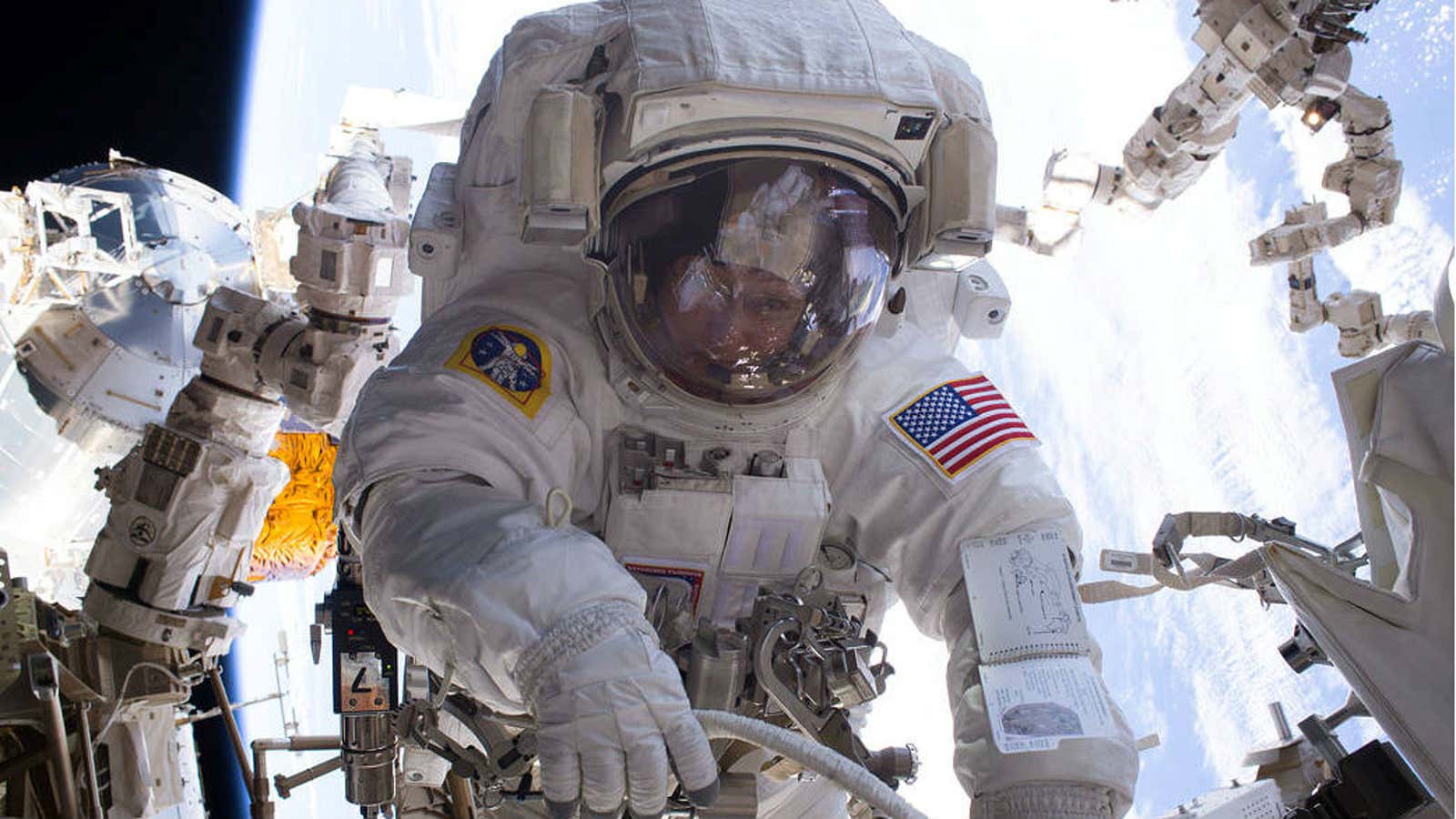The vast majority of us spend our entire lives pulled down by gravity. Then there are astronauts.
This small population of space travelers has given researchers a rare look at what happens to the human body when it’s able to spend significant amount of time outside the downward pull of the Earth.This week, a study on one of the largest groups of astronauts yet—a whopping 34 participants—was published (paywall) in the New England Journal of Medicine.
In the new study, a team of international radiologists funded by NASA looked at MRIs of the brains of astronauts before and after their trips to space. The scientists found that upon returning to Earth, many of the astronauts’ brains had become repositioned inside their skulls, floating higher than before. In addition, the space between certain brain regions appeared to have shrunk. The changes were more common in astronauts who took longer trips into space.
The team characterized astronaut trips as short (an average of less than 14 days) or long (an average of about 165 days). Radiologists who didn’t know each astronaut’s duration in space compared MRIs from before and after their trips.
Of the 34 total astronauts involved in the study, 18 took long trips to space—spending most of that time on the International Space Station—and of those, 17 returned to Earth with smaller regions between the frontal and parietal lobe. The same area of the brain also shrunk for three of the 16 astronauts who took shorter trips with the US Space Shuttle Program. The researchers also found that 12 of the ISS astronauts and six of the space-shuttle astronauts returned home with their brains sitting slightly higher in their skulls than before.
It’s not clear what, if anything, these brain changes mean for the health of space travelers. In general, it appears the human body to tolerates space travel fairly well: the time astronauts have spent in zero-gravity environments so far doesn’t seem to have had any significant or long-lasting effects.
There have really only been minor complaints. Astronauts have complained about headaches in space before, which NASA chalked up to differences in pressure inside a person’s skull in space compared to Earth’s surface. Another small study of astronauts found that a buildup of brain fluid behind the eye socket seems to flatten the eyeball, which can impair vision. It could be that, without gravity, the fluids in our bodies reposition themselves around our organs, and that in turn puts pressure on them in ways we’re not used to experiencing on Earth. That said, researchers still aren’t sure if these fluid changes are totally responsible for these symptoms—it could be other aspects of space travel, like general stress, exhaustion, motion sickness, or different diets.
The open question, though, is how a human body would stand up on longer space trips, say to Mars.
